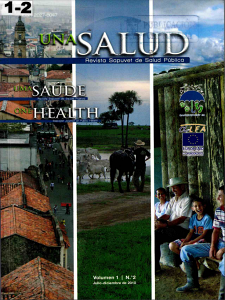Abstract
The author presents a brief review of the importance and origin of antibiotic resistance dissemination and the importance of contamination by antibiotics and resistance genes in the natural ecosystems (not clinical). Resistant bacterial infections are difficult to treat and have a direct effect on the patient that suffers from it, and indirectly for patients who must prevent these infections (usually immunosuppressed for several reasons). It is, therefore, important to understand the effect of contamination by antibiotics and resistance genes in the habitats not only clinical but also in environmental ecosystems. Contamination occurs as a result of waste products from human activities (mainly animal husbandry, fisheries and hospital waste) which have a much higher antibiotic concentration than normal. This encourages the exchange of resistance genes, both between environmental bacteria and between these and the bacteria associated with human microbiota (both commensal and pathogenic), thereby increasing the possibility to spread resistance and having a negative effect in human health. Moreover, the environmental microbiota and biodiversity can be altered and more resistant bacteria will predominate, resulting in certain biological cycles changes.Downloads
Download data is not yet available.



